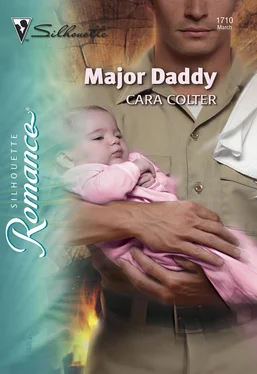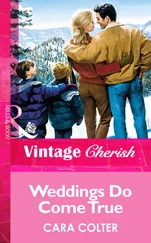They cried back and began to run, and moments later were reunited with their grandmother. Their unbridled exuberance at finding her returned to life was nearly as exhausting as their sorrow had been.
Cole managed to herd the whole gang, including Granny, whom he secretly labeled Number Six, into the dark interior of the house.
The head injury had bled profusely. Granny’s gray hair was matted with blood and it streaked her kindly wrinkled face and neck.
“This is Mr. Herman,” Saffron told her. “We went to get him because we thought you were dead.”
“My poor babies,” Granny said, and then extended a frail hand. “Thank you so much for coming to my rescue, Mr. Herman.”
He didn’t really care if she called him Mr. Herman or Santa Claus. He wanted to assess her injury as soon as possible. The house, apparently electrically heated, was cold, and he herded his charges into what he knew must be called the great room. Located off the main hallway, it was a huge room with picture windows that faced the lake. In the dim light, he could see the floor was marble-tiled with thick Persian rugs tossed on it. Big mahogany-colored leather couches were grouped facing the window. Thankfully, on the north wall, was an enormous floor-to-ceiling stone fireplace.
He equipped the children with flashlights to help them find their way around the dark house, and then gave them each a job they could handle. The baby was set on the floor beside him while the rest of them went in search of clean cloth for bandages, ice and sturdy straight sticks suitable for splinting, should they be needed.
While they were gone, Cole opened his first-aid kit and began to swab away the worst of the blood. He grilled the old girl to see if she was confused, but, aside from being woozy, she seemed articulate and aware. She knew her age, the date, and even the impossible names of all those children.
She was not weak or numb on either side of her body, no blood or fluids were coming from her ears or her nose. She had not vomited or had convulsions that she was aware of.
Still, Cole knew the very fact she had lost consciousness made the injury serious. The roads were impassable and the phones were out.
But for him, handling emergencies on his own, without counting on backup, came as naturally as breathing.
The children brought him sheets, and, even the rough soldier that he was, he recognized them as very expensive. Percale. Unhesitatingly, he tore them into bandages and encouraged the children to do the same.
Children two, three and four were soon hauling wood. He settled Granny on the couch, built a fire, and, with Saffron at his side, began to haul mattresses down from upstairs.
“This is the boys’ room,” Saffron told him. The room was done in a jungle theme, complete with fake palm trees with stuffed gorillas swinging from them.
Saffron’s own room paid homage to a vapid-looking girl who was too skinny and had too big a mouth. Brittany or Tiffany or something. The room was divided by an invisible line, and the other half—Kolina’s, Saffron informed him—was aggressively Dalmatian. There were black-and-white spots everywhere. They marched relentlessly up the walls and across the ceiling, they dotted the rugs, the bed comforter, the pillows, the dresser and drawers.
Cole tried to decide which half of the room was more nauseating, but reached no conclusion. After salvaging both mattresses from the room, he closed the door firmly, hoping never to have to enter again.
The baby’s room was a dream of ruffled white lace. It was everywhere—skirting the crib, forming a drape over it, hanging in big wads from the windows.
And those kids had thought his house was spooky!
Shaking his head, he began to haul mattresses down the curved marble staircase. It was easy to see why it had caused such a terrible injury. The marble was slippery and exceedingly hard. He shook his head at the impracticality of it.
In the great room, he laid out the mattresses and got his now-willing little soldiers to haul bedding. One last emergency before he tucked them in.
The baby needed fresh pants and badly.
“There’s only a few diapers,” Granny told him weakly. “The housekeeper will bring new ones with the grocery order tomorrow.”
Cole didn’t want to be the one to break it to her that the housekeeper probably wasn’t coming tomorrow. He made a mental note to check around and see what was available that would pass as a diaper.
The diaper was absolutely rank. He had to tie the triangular bandage from his first-aid kit around his nose to even begin to deal with it.
The children shouted with laughter at his impromptu face mask and his clumsy efforts to handle the diaper. “This is a Code Brown,” he informed them, trying not to gag. “The other is a Code Yellow.”
“Poop, Code Brown,” his second in command translated for him. “Pee-pee, Code Yellow.”
The children squealed with laughter though he failed to see the humor. The replacement diaper was finally in place, more or less, the baby had a bottle and the rest of them were assigned beds. He tucked them in.
They took his refusal of their requests for stories, snacks and teddy bears with fairly good grace, but insisted on good-night hugs and did not even notice his awkwardness in performing this rare duty. Then they laid down their heads and slept almost instantly.
Granny was soon sleeping, too, and he set his watch alarm to check her pupils every two hours. Exhausted, Cole stoked the fire, pulled the sleeping bag he had brought from his knapsack and fell asleep on one of the large leather couches.
He awoke to find the toddler sitting on his chest, her face three inches from his, her eyes locked on his, willing him awake.
“Me Kolina,” she announced as soon as he pried one eye open.
“Number Four,” he corrected her. “Go back to sleep.”
“Baby tinks,” she informed him. “Code Bwon.”
His own nose had already let him know that. And that was how his day began, with a baby stinking and the unsettling discovery that at this rate they had a two-hour supply of diapers. And the pace didn’t let up one little bit, until Number Seven appeared, two full days into the siege.
There was still no power and no phone. The main road was not open. Cole would not, in good conscience, leave an aging, injured grandmother alone to cope with these challenges, never mind the five rambunctious children.
And now Number Seven had arrived. And it didn’t appear that she was a housekeeper with a nice, fresh supply of diapers, either.
“What kind of nut has five kids?” The voice was gravel-edged and deep, and the man who regarded Brooke Callan from the doorway of her employer’s house made her heart drop like an elevator rushing down a shaft.
The man was glorious and having spent the last five years in and around the film industry in Los Angeles as actress Shauna Carrier’s personal assistant, Brooke was now something of an expert on glorious men.
And their black hearts.
To her discerning eye, this one looked more black-hearted than most of them. He stood at least six feet tall, handsome as a pirate captain. He had the faintly disheveled look of a man so certain of his charms he could be careless about his appearance.
His denim shirt was unbuttoned and untucked, and the white undershirt underneath molded perfect pecs, a wide powerful chest, a flat, washboard stomach. His jeans, worn through on both knees, were so soft with age and wear that they clung to the large muscles of sculpted thighs.
The man had dark whiskers roughing his perfectly planed cheeks and his clefted chin. His hair, black and curling wildly, had not been groomed, a fact that just underscored his faintly brutal untamed charm.
In startling contrast to the darkness of his hair and whiskers, and to the olive tone of his skin, were eyes as blue and startling as sapphires. There was a certain light of strong command in them that Brooke did not see in actors, though, not even when they were trying their hardest to look menacing.
Читать дальше












